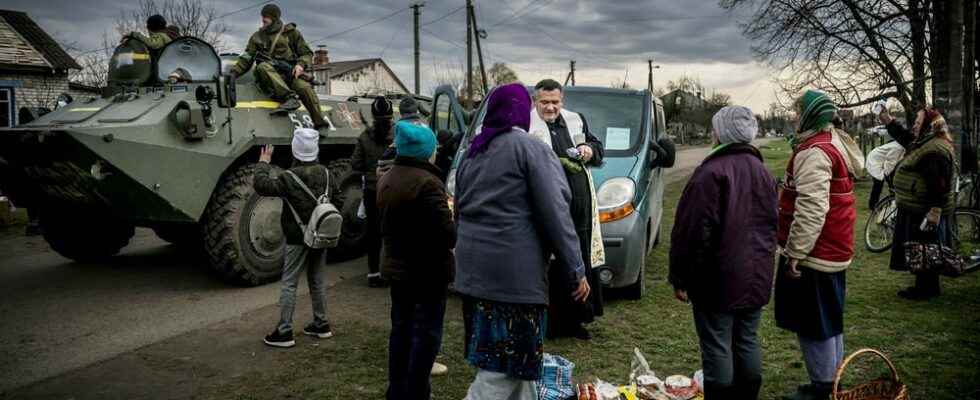Listen to the episode:
STUDIO DN
Foreign Week: What is it like to report from a war?
Anna-Lena, you have been to Ukraine many times, both before and after Russia’s escalation of the war in February. You’re on your way there now. What determines where you choose to go?
– We book it quite late. The situation on the ground is constantly changing. What you should never do, and which can also be a security danger, is to get stuck early on in “now we have to do this”. You have an idea of what is important right now, but only when you are in place do you know what can be done and then you always have to cook according to location, says Anna-Lena Laurén, and continues:
– I have been monitoring the war in Ukraine since 2014, and one difference now is that it has become more difficult to gain access to the front. The Russian side has always been controlled, but now so is the Ukrainian side. This means that most of the front reports you see are tightly controlled. This means that what I think is most interesting and relevant right now is finding people who live as close to the front as possible, people who are in the war, and talking to them. Find their stories.
As a journalist or photographer, you can often use the professional role to handle situations. This does not mean that you turn off, but can limit how you react emotionally. Saeed, you worked as a journalist when there was a war in your home country, what do you do to keep your distance?
– It is not easy to keep your distance all the time. I can be affected, especially if it’s about children or injustice. At the same time, I always have in the back of my mind that it is not my role to be influenced – then I will be directly involved. Many Arabs have high expectations of journalists, some believe that when a journalist from Sweden, or the western world, writes about a problem, it will be solved immediately. But I can never promise more than that I will write. Then you get to see how it goes, says Saeed Alnahhal.
He continues:
– I have always stood behind the popular uprising in Syria, but how I portray a topic depends on the editorial policy of the media house I work for. It can be about what concepts I use, and what topics and people I monitor and interview. It has often caused me problems – in Syria, but also in Sweden. Recently I received criticism from friends here in Sweden because I used the word “civil war”. They believe that what is happening in Syria is a revolution against a dictator, not a war between relatives. In English, the word civil war is “civil war”, ie a war between relatives and fellow human beings. And when I wrote a report that the election in Syria also divides Syrians in Sweden, then neither the regime’s supporters nor opponents were happy that I portrayed the subject in a neutral way.
In the section, you will hear more about how to monitor low-intensity, long-lasting conflicts and who the real heroes of war reporting are.
Listen to the episode here:
STUDIO DN
Foreign Week: What is it like to report from a war?
Participants: Anna-Lena Laurén, Russia correspondent, Saeed Alnahhal, foreign correspondent, Nathan Shachar, correspondent in Jerusalem, Torbjörn Petersson, foreign correspondent and former correspondent in Beijing. Host: Sanna Torén Björling. Producer: Sabina Marmullakaj.
The podcast is free for all. Listen in the DN app or on Podplay or other podcasts.
In the DN app, you can choose to download and listen offline. Download Dagens Nyheter’s app for iOS here and for Android here. Information on all podcasts is available here.
Do you want to contact the podcast editor? Email us at [email protected]
Listen to DN’s Foreign Week in the podcast Studio DN
It changed Europe – so the war draws on the map
Russia’s invasion of Ukraine puts European relations at the forefront – old alliances break down and new ones are formed. But what does it mean that right-wing populists, but also nations, are now re-evaluating their previous ties to Putin?
Participants: Lovisa Herold, correspondent in Berlin, Erik de la Reguera, correspondent in Paris, Philip Teir, correspondent in Helsinki, Pia Gripenberg, correspondent in Brussels. Host: Ülkü Holago.
This is how the pandemic has united and divided the world
Life has in many ways returned to normal in Sweden, but just over two years after the corona pandemic broke out, millions of people in other parts of the world are still living under closures.
Participants: Marianne Björklund, correspondent in Beijing, Sigrid Melchior, correspondent in Brussels, Sanna Torén Björling, former correspondent in Washington DC. Host: Ülkü Holago
Show more
